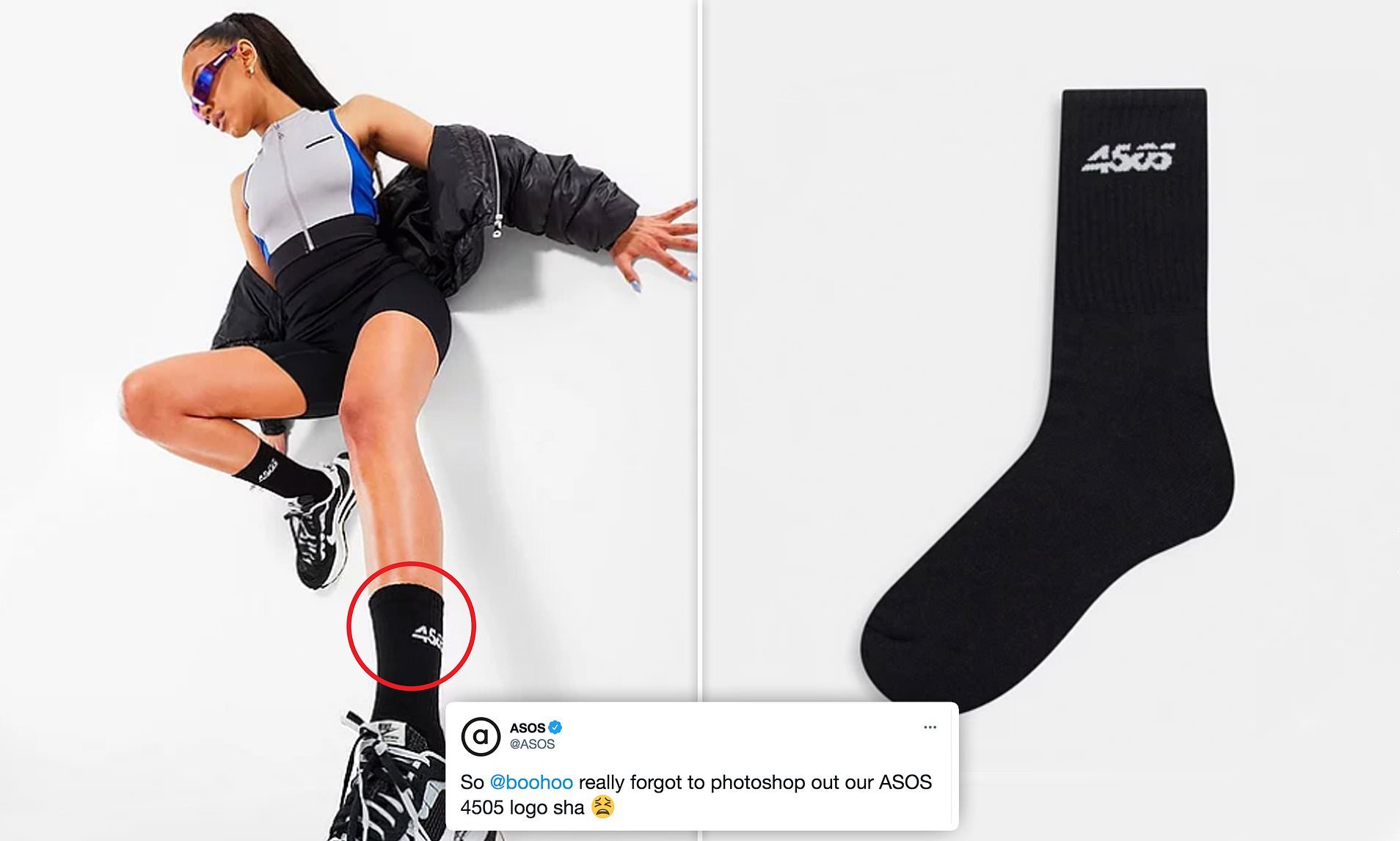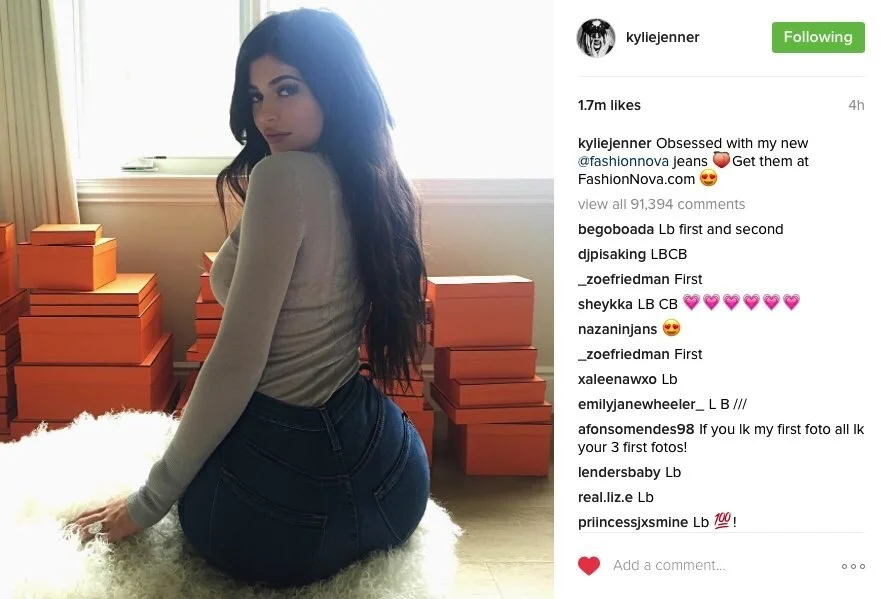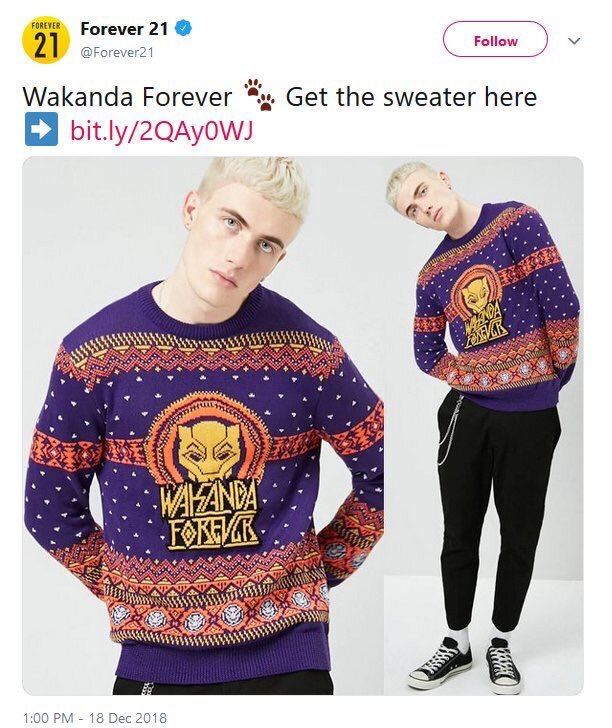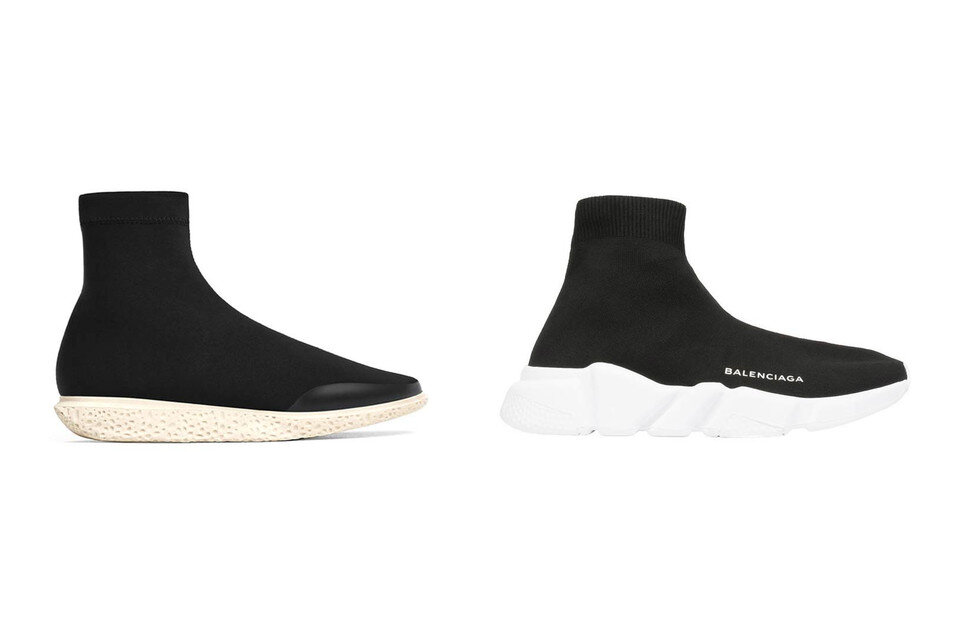The 15 Worst Fast Fashion Brands to Avoid in 2021
ICYMI, the fashion industry is undergoing major changes rn. If you've become #woke in 2020, you've probably learned a thing or two about sustainable fashion. If you haven't, here's a brief summary:
Thanks to fast fashion brands, trends change faster than ever before, and clothes are becoming cheaper than ethically possible.
While there used to be four fashion seasons a year, companies like Zara and Forever 21 now release up to 52 "micro-seasons" each year. Even worse, these companies rely on unethical business practices and modern slave labor to keep prices low and profits high.
Fashion is the second most polluting industry globally (second only to oil), and fast fashion is one of the biggest contributors to the problem. It's time we start addressing the issue and saving the planet.
Below, you'll find the 15 worst fast fashion brands to avoid in 2021. The easiest way to do your part is to stop financially supporting these companies and the problematic WASPs on their executive boards. By continuing to shop with them, you send the message that you value low prices over sustainability and ethics.
The easiest way to support sustainable fashion is to stop shopping at unethical clothing companies.
Here are the 15 worst fast fashion brands to avoid in 2021.
Boohoo
British fast fashion brand Boohoo proves that garment worker exploitation can happen anywhere— even in well-developed countries with "fair labor standards."
Despite regularly offering 50-75% off their already low-priced clothes, Boohoo boasts that they produce their garments in the UK. A 2019 investigation by The Guardian found that the fast fashion brand paid illegally low wages to workers at their Leicester and Manchester factories.
Remember, if a fast fashion brand's prices sound too good to be true, it's because they are. It's impossible to pay your workers a living wage selling $3 tees.
Brandy Melville
Though commonly associated with California WASPs, Brandy Melville began in Italy in the 1980s. The store hit the US in 2009 and has racked up a lengthy list of controversies in the 12 years since.
Brandy Melville targets a specific type of customer— a young, thin, affluent, white teen— through small sizing, a lack of diversity, and exclusionary hiring practices. Most Brandy Melville clothing is sized as one size fits all, yet as many YouTube try-on hauls can prove, fits only sizes 0-4.
Brandy Melville was under fire again in 2020, facing allegations of racism and body-shaming. A former employee has gone viral on TikTok for her Reasons Not to Shop at Brandy Melville series, where she roasts her managers for not hiring non-white applicants, using employees for free social media advertising, and body-shaming employees.
In our humble opinion, most Brandy Melville clothes look like they came straight out of a vintage shop. Why not save the planet and wear Zeitgeist vintage instead?
Fashion Nova
In 2019, a New York Times investigation revealed that—despite hiring high-priced celebrity influencers like Kylie Jenner and Cardi B— Fashion Nova was underpaying garment workers at their Los Angeles factories. To make you feel even worse about Made in America products, a Department of Labor investigation found labor violations at 85% of garment factories.
Fashion Nova is one of many fast fashion brands to use influencer marketing, celebrity endorsements, and a strong social media presence to create a false sense of morality and make the aspirational feel attainable.
Forever 21
Forever 21 was one of the first retailers to adopt a fast fashion model. As the demand for affordable, trendy clothing grew, it began to churn out new styles at an alarmingly fast pace. At one point, the company was approving over 400 designs a day.
At its peak in 2015, Forever 21 grossed $4.4 billion in global sales. It became a staple in malls across the US, with over 480 locations nationwide. Despite slapping Bible verses on their bright yellow bags, the company relied on unethical business practices to survive. A US Labor Department investigation found that workers at Forever 21's LA factories made as little as $4 an hour.
As the fast fashion industry became more competitive, Forever 21 was quickly overshadowed by brands like Zara and H&M, who offered higher-quality, trendier clothing for a similar price. The company filed for bankruptcy in 2019 and closed over 15,000 stores worldwide.
Free People
When most people think of fast fashion, they think of low-priced brands like H&M and Zara. While mid-priced brands like Free People may seem ethical on the surface, they rely on the same unethical business practices as their cheaper competitors.
The boho brand is owned by URBN— a retail giant that also owns Anthropologie and Urban Outfitters. Despite the constant controversy surrounding its founder Richard Hayne, URBN recorded over $1 billion in profits in 2017. (You can find more on Hayne in the Urban Outfitters section below)
Free People has repeatedly been called out for cultural appropriation and stealing independent artist's designs for their mass-produced products.
Mango
Mango is one of many fast fashion brands that use greenwashing tactics to appear more eco-friendly. Despite the Transparency Pledge, Sustainability Report, Code of Conduct, and Code of Ethics posted on its website, the company lacks clear sustainability commitments and transparency about its garment production.
While their sustainability initiatives— like pledging to use 100% sustainable cotton before 2025— sound great on the surface, they are not enough to counteract their overproduction and excess waste. Mango's website claims they release a new collection every two weeks and designs 18,000 garments each year. It is impossible to be sustainable and ethical at this rate of production.
Mango has also been linked to the 2013 Rana Plaza factory collapse— the deadliest garment-factory disaster in history. Unlike other fast fashion brands involved, the company reportedly refused to discuss compensation for the families of the 1,134 garment workers who died in the collapse.
Missguided
UK-based fast fashion brand, Missguided is an online-only retailer that went viral thanks to social media and influencer marketing. The brand uses flashy collabs with stars like Sofia Richie and Stassie Karanikolaou to create hype around their low-quality, low-cost clothing. Thanks to micro-influencers and celebrity endorsements, the company saw a 75% increase in revenue during 2017.
The brand's about page states, "It's not just fast fashion - it's rapid fashion. We drop up to 1000 brand new styles every week, working constantly to bring our babes the freshest pieces, put together in wearable ready-to-go outfits."
This unsustainable production rate is undoubtedly contributing to the 1.2 billion tons of greenhouse gas emissions and 18.6 million tons of clothing waste produced in 2020.
Nasty Gal
As you may have learned from the #Girlboss book and one-season TV show, Nasty Gal was one of the first successful online vintage shops. Though Nasty Gal started with good intentions, it has changed a lot since its early days. As the company continued to grow online, they began carrying less vintage and more cheap trendy clothing. What once was a way to dress sustainably soon became a fast fashion ruse.
The brand's website constantly offers deep discounts of 50%-70% off sitewide. This marketing tactic tricks naive young customers into thinking they're scoring a killer deal on a high-priced item. Nasty Gal's garments are made using cheap, synthetic materials and are known for their low quality and poor fit.
Clearly, the fast fashion track didn't turn out well for Nasty Gal. They were bought out Boohoo after filing for bankruptcy in 2016.
Pretty Little Thing
Pretty Little Thing is part of the Boohoo Group— a UK-based fashion conglomerate that also owns Boohoo, BoohooMAN, Nasty Gal, and Karen Millen. You've probably seen Pretty Little Thing on influencers' Instagram feeds and YouTube try-on hauls, as the brand relies heavily on social media marketing and celebrity collaborations to mask its unethical business practices.
Pretty Little Thing has a lengthy list of celebrity brand ambassadors, including Hailey Bieber, Little Mix, Ashanti, Kourtney Kardashian, Saweetie, and Ashley Graham.
In 2020, investigations revealed that Pretty Little Thing's cheap, trendy clothing is made in Leicester sweatshops where workers made less than £4 an hour. One PLT distribution center in Sheffield experienced a large COVID-19 outbreak after failing to use social distancing or require its employees to wear masks. The brand's market value has dropped by more than a third since the accusations of modern slavery emerged.
Primark
Primark— an Irish fast fashion retailer with over 380 stores in 13 countries— is another clothing brand linked to the Rana Plaza collapse in 2013. The company agreed to a $9 million settlement with the 2,500 people injured and the families of the 1,134 workers who died.
That same year, multiple SOS messages were found in Primark clothes by the department store's customers. The notes— one of which was wrapped in a prison identity card— claimed that they were Chinese inmates forced to work 15 hours a day in garment factories. Primark claims the notes were a hoax.
SHEIN
SHEIN is, by far, one of the worst fast fashion brands in 2021. The Chinese-based fast fashion site is known for selling high volumes of trendy clothes at a low price. Unfortunately, the company is known for misleading customers and has been called out online by several fashion YouTubers.
SHEIN shoppers often receive entirely different items than what was pictured, and a SHEIN size large is often compared to the average size small. They've also tried selling Islamic prayer mats as decorative rugs and literal swastika necklaces.
As if that wasn't enough to make you never want to buy from them again, the SHEIN app was banned in India after stealing users' data.
Topshop
Topshop itself has made a number of errors over the years, but the company's founder Philip Green has racked up even more.
He has been accused of making racist comments, knowingly using sweatshops, avoiding paying his taxes, draining employees' pension funds, as well as sexually harassing and bullying staff. Peep the photo of him kissing a very uncomfortable young employee for proof. In 2019, Green was found guilty on four counts of misdemeanor assault for inappropriately touching and spanking a Pilates instructor in Arizona.
Many remember Topshop for being the original collaborator on Beyonce's athleticwear brand, Ivy Park. After allegations of racism and sexual harassment emerged amidst the #MeToo movement, Beyonce purchased Green's shares of Ivy Park.
Thankfully, Topshop is struggling financially in 2020. Many fashion experts predict they're one of the next fast-fashion giants to go under.
Victoria Secret
The Victoria Secret Fashion Show has come under fire over the past few years due to a lack of diversity. It's known for using thin, predominately white models that promote unrealistic beauty standards. To prepare for the show, Adriana Lima reportedly works out twice per day for months, avoids solid food the week prior to the show, and doesn't drink water for 12 hours before the show to look slimmer on the runway.
In 2018, the company's CMO Ed Razek told Vogue that they'd never use a plus-size or transgender model in their show because it wouldn't sell the fantasy. After two decades in a prime-time slot on network television, the Victoria Secret Fashion Show was officially canceled in 2019.
Nowadays, thanks to brands like Aerie and Savage X Fenty that represent a diverse range of skin tones and body types, Victoria Secret is not the lingerie industry leader it used to be.
Urban Outfitters
Richard Hayne, the president and CEO of Urban Outfitters, has a net worth of $1.1 billion, despite his involvement in several controversies. While the Urban Outfitters brand is seemingly inclusive, Hayne has a history of homophobia. In 2012, he donated over $13,000 to the notoriously homophobic senator Rick Santorum.
The company has also been accused of cultural appropriation and stealing designs from independent artists on Etsy. In 2012, the Navajo Nation sued Urban Outfitters for trademark infringement over the company's line of "tacky and insensitive" products that used the name Navajo name and the tribe's symbols.
TBH, most of the items at Urban Outfitters look straight out of a vintage store. Instead of supporting their unethical business by wearing their garments, why not support a sustainable fashion brand that's equally as cute (read: Zeitgeist) instead.
Zara
Zara is perhaps the most well-known fast fashion brand in the world. The Spanish-based fashion giant was a pioneer of the fast fashion industry. The company can take a new design from prototype to sellable inventory in as little as 15 days. Crazy, right?!
They're also known for knocking off runway designs and boosting sales by making copycat products available sooner than the real thing. Peep the almost identical Balenciaga sneakers below for proof.
Amancio Ortega, the founder of Zara's parent company Inditex, is the world's wealthiest clothing retailer. His current net worth is over $66 billion, and there's a clear reason why. The company uses greenwashing marketing, cheap labor, and unethical business practices to remain an industry leader. Add Pull & Bear, Stradivarius, Bershka, and Oysho to your list of fast fashion brands to avoid, as Inditex owns them too.
And if that wasn't enough, a woman once found a dead rat sewn into a dress she purchased at Zara.









